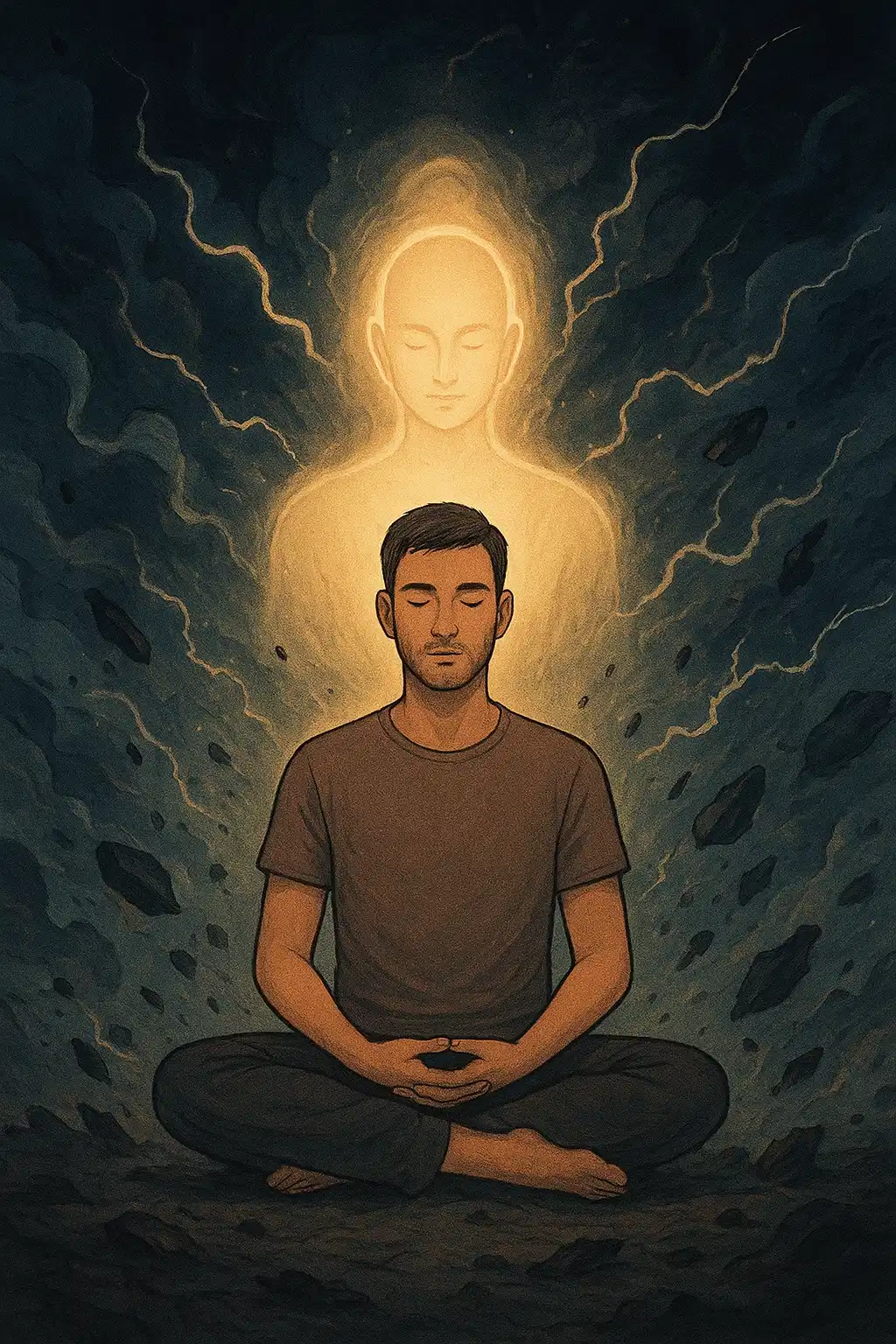Travel is supposed to be an adventure, but sometimes the unexpected can turn excitement into terror in a heartbeat. Back in 2010, I found myself wandering the vibrant streets of Colombia, soaking in the colors, sounds, and flavors of the country. Little did I know, one evening stroll would become a pivotal memory—a brush with danger that would test my instincts and shape my view on travel forever. Here’s the story of how I narrowly escaped a violent robbery attempt, and the lessons I learned about staying sharp, even in paradise.
A Chilling Encounter on a Quiet Colombian Street
It was a balmy evening in Bogotá, the kind where the city seems to hum with a secret life after sunset. I had just finished dinner at a small local restaurant and, feeling adventurous, decided to walk back to my hostel instead of hailing a taxi. The streets were quieter than usual, and a gentle breeze danced through the colonial alleyways. As I walked, I admired the old facades and the distant laughter spilling from open windows. The city felt almost safe—almost.
A sudden hush fell over the street as I turned a corner. The familiar bustle faded, replaced by the sound of my own footsteps echoing off the cobblestones. For a moment, I considered turning back, but the thrill of exploration urged me forward. I pulled my backpack close and shoved my phone deeper into my pocket, a subconscious move born from an inner whisper of caution.
Streetlights cast long, eerie shadows, and every alleyway seemed to hold secrets. I noticed a stray dog watching me from across the road, its eyes following my every move. There was a palpable tension in the air, a sense that I was not as alone as I wished to believe. My pace quickened, and so did the thumping of my heart.
That’s when I heard it—a scuffle of footsteps behind me. Not the measured stride of another late-night traveler, but the hurried, purposeful steps of someone with a mission. I stole a glance over my shoulder and saw two figures, their faces obscured by hoodies. They moved in tandem, closing the gap with alarming speed.
Instinct screamed at me to run, but fear rooted me in place for a split second. My mind raced through every travel advisory I’d ever read, every warning about pickpockets and thieves. Here I was, living the cautionary tale. The street ahead seemed endless, the safety of lights and people impossibly far away.
I took a deep breath, steeling myself for what was coming. It was clear: this was no ordinary encounter. I was about to become the target of a violent robbery—and my only chance was to stay alert and act fast.
Two Shadows Approach: The Robbery Begins
The two men closed in, blocking my way forward and cutting off any easy escape. The taller of the two barked something in rapid Spanish, his voice hard and threatening. Even if I’d been fluent, the tone told me everything I needed to know: they wanted my bag, my phone, and anything else of value. The second man moved to flank me, his hand disappearing into his jacket—a gesture I recognized from a hundred movies. My heart pounded so loudly I could barely hear their demands.
I raised my hands, palms open, trying to show I meant no trouble. “Tranquilo, tranquilo,” I stammered, attempting to keep my voice steady. There was a glimmer of hope in playing the part of the compliant tourist, buying myself precious seconds to think. As the second man edged closer, I could see his eyes dart nervously. He was jittery—maybe as scared as I was.
They gestured for my backpack. I pretended to fumble with the straps, deliberately making the process slow. My mind was racing through every possible escape route. The street behind me was deserted, but up ahead, I could barely make out the glow of a corner shop’s neon sign. If I could just break free and run for it…
The taller man grew impatient and grabbed at my arm, trying to yank the bag away. His grip was strong, but adrenaline surged through me, making me bolder than I’d ever felt. I glanced around—no cars, no witnesses, just the faint hum of the city in the distance.
The second man pulled something shiny from his pocket—a knife. My breath caught in my throat. This was no longer just a mugging; the danger was real and escalating. Everything slowed down as I weighed my options: hand over everything and hope they’d let me go, or try something risky.
A spark of desperation flared inside me. I remembered reading that most street robbers want a quick score, not a fight. If I could startle them, break their rhythm, maybe—just maybe—I could get away.
My Heart Races: Thinking Fast to Outsmart Them
With the taller man still gripping my arm and the other brandishing the knife, I knew talking my way out was no longer an option. My eyes darted back to that neon-lit shop—the one beacon of hope in a sea of shadows. With my free hand, I dug into my pocket, pretending to pull out my wallet. Instead, I threw a handful of crumpled bills and coins onto the ground in front of them.
As the money scattered, both men flinched. The temptation of easy cash momentarily distracted them, loosening the taller man’s grip. It was all the opening I needed. Summoning every ounce of courage, I twisted violently, wrenching my arm free. In the chaos, my backpack slipped halfway off one shoulder—a small price to pay if it meant escaping unscathed.
I bolted with everything I had, sprinting down the street toward that neon sign. I could hear shouts and hurried footsteps behind me, but I didn’t dare look back. My lungs burned, my legs pumped, and my thoughts narrowed to a single mantra: Don’t stop. Don’t stop. Don’t stop.
As I neared the shop, the world snapped back into focus. The street was suddenly brighter, the sounds clearer. A few locals lingered outside, chatting and laughing, blissfully unaware of the drama unfolding just meters away. I hurtled toward them, waving my arms and shouting for help in broken Spanish.
The sight of witnesses did what my words could not. The two men, now lagging several paces behind, hesitated at the edge of the light. After a tense moment, they melted back into the darkness, vanishing as abruptly as they had appeared. I staggered into the circle of light, gasping for breath, my heart still hammering in my chest.
For a moment, I simply stood there, trembling with relief and disbelief. I’d escaped—not unscathed, but intact. Around me, the locals gathered, trying to make sense of my story. Their kindness and concern were a balm after the terror of the last few minutes. I was safe, but the adrenaline wouldn’t let me forget how close I’d come to disaster.
Safe at Last: Finding Shelter After the Escape
Still shaking, I stumbled into the corner shop, desperate for shelter. The owner, an older woman with kind eyes, took one look at my pale face and beckoned me inside. She poured me a glass of water and asked what had happened. My Spanish was clumsy, but the universal language of distress spoke volumes. She listened patiently as I pieced together the story, her hand resting gently on my shoulder.
Within minutes, a small crowd had gathered. Word travels fast in these neighborhoods, and soon a local man offered to walk me back to my hostel. I hesitated at first—trust was suddenly a fragile thing—but his calm demeanor and the shop owner’s reassurances convinced me it was the right move. Together, we navigated the now-familiar streets, every shadow seeming to pulse with the memory of what had just happened.
As we approached the hostel, I finally started to breathe easier. The sight of the security guard outside was a welcome relief. I thanked my escort profusely, pressing his hand in gratitude before ducking inside. The hostel felt like a fortress compared to the vulnerability of the streets, the laughter of backpackers and hum of music a soothing contrast to the ordeal I’d just survived.
I recounted the story to the hostel staff and a few fellow travelers, their reactions a mix of shock and sympathy. One of them, a seasoned traveler, nodded knowingly. “You did the right thing,” he said. “Never freeze—always make a move, even if it’s just to distract them.” His words echoed the lesson I’d learned the hard way.
That night, I barely slept. Every creak of the building sent my heart racing, every distant shout set my nerves on edge. But I was grateful—to the shopkeeper, to the stranger who walked me home, and to whatever instincts had kicked in at just the right moment. Above all, I was grateful to be alive, my belongings mostly intact, my spirit unbroken.
By morning, the trauma had begun to fade, replaced by a new resolve. I would continue my travels with caution, yes, but I would not let fear define my adventure. Colombia had shown me both its danger and its kindness, and I was determined to remember both.
Looking back on that terrifying night in Colombia, I’m reminded of how quickly circumstances can change, and how vital it is to stay alert and trust your instincts when traveling. Escaping that robbery attempt wasn’t just about luck; it was about thinking on my feet, reading the situation, and relying on the kindness of strangers. While I wouldn’t wish such an experience on anyone, I’m grateful for the lessons it taught me—the value of resilience, the importance of community, and the indomitable will to survive. Travel is never without risk, but it’s in these moments of peril that we discover what we’re truly made of.


